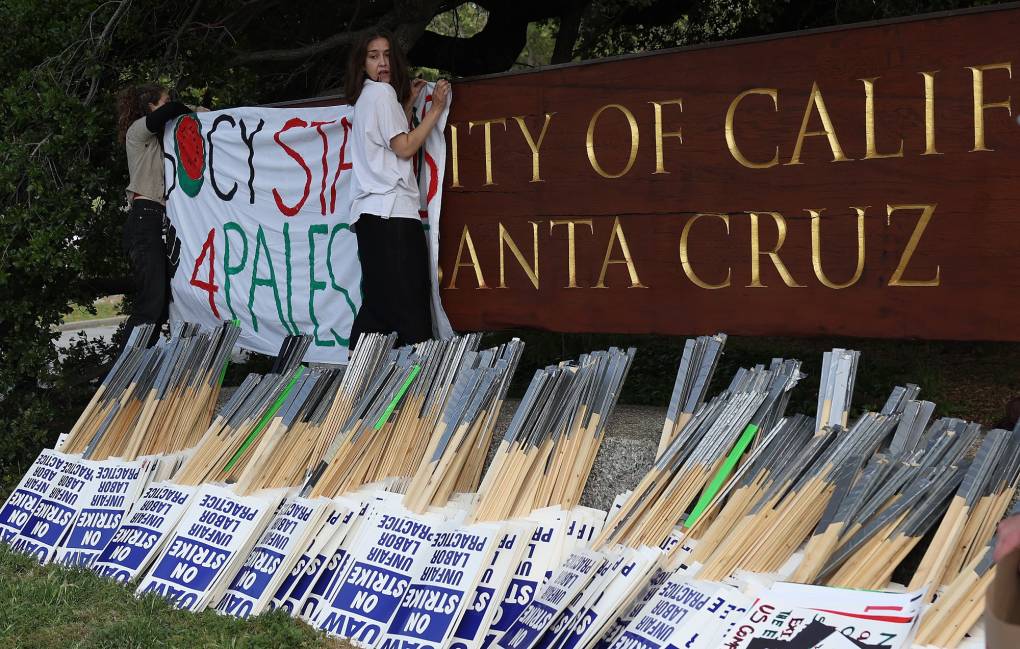Yulia Gilichinskaya, co-president of the graduate student association, said international students who are dismissed from their teaching positions would have to pay out-of-pocket for tuition, health care and other expenses without being able to earn an income.
“Effectively losing employment for international students means we cannot stay here,” said Gilichinskaya, an international student pursuing a Ph.D in film and digital media.
Still, she and other students said they were undeterred by the warnings, and planned to meet Tuesday evening to discuss next steps.
“International students are an active and vital part of this campaign,” said Gilichinskaya during Tuesday’s student press conference. “We know the risks of striking and [we’re] doing it nonetheless to make it clear we are in a crisis and it needs to be resolved now.”
Sohum Banerjea, an international graduate student who studies computer science, also criticized the university’s tactics.
“They’re using this power that they have constructed over us in order to try and force us to bend to their will,” said Banerjea. “That is not what I think a public university should be in the business of doing.”
UCSC officials said in a followup statement that the message to international students was meant to give fair notice about possible repercussions of the strike but regretted inadvertently creating unnecessary anxiety.
In a letter to faculty on Friday, Executive Vice Chancellor Lori Kletzer said graduate students had already been offered additional support packages starting in the fall, as well as a need-based annual housing supplement of $2,500.
“Despite this overture that provides significant improvement in financial support, the grading strike did not come to an end, but escalated to a full teaching strike,” she said. “And while I understand the drivers, I do not support the approach. Moreover, and more importantly, the approach taken by our striking graduate student employees is having a significant negative impact on the emotional well-being and academic success of our undergraduate students, our dedicated staff who have gone above and beyond to mitigate the consequences, and the very mission of our campus.”
Students are demanding $1,412 more per month. Currently, graduate students who work as teaching assistants earn about $2,434 before taxes, according to the graduate student association.
Students like Gilichinskaya insist the 3% annual cost of living increases in the current contract are not enough to be able to afford the increasing cost of housing in Santa Cruz, where monthly rents often exceed $2,000 . Roughly 70% of her salary currently goes to rent, she said.
KAZU’s Erika Mahoney contributed to this report.



